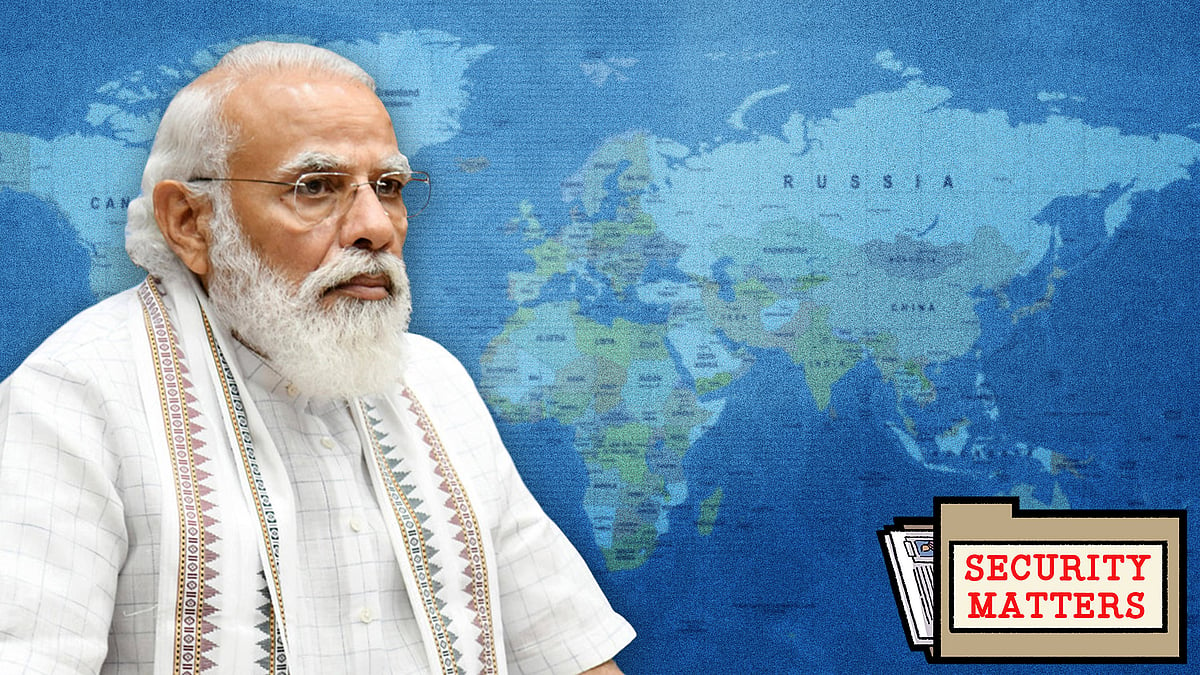Playing the India vs Pakistan card is bound to unite Pakistan, even amid major strife
India’s gloating about comments in Pakistan’s parliament might have an unintended effect.
“Nationalist” anchors have had a field day crowing over some oh-so-juicy remarks in Pakistan’s National Assembly this week. First, the former speaker said the army chief and the foreign minister had been shivering and sweating when they pleaded with opposition leaders to agree to the release of Wing Commander Abhinandan Varthaman at the end of February 2019. Then, a minister said the entire nation of Pakistan could take credit for the “Pulwama attack” under the leadership of prime minister Imran Khan.
The minister was referring to the terror attack in which 44 Indian paramilitary soldiers were killed on February 14 last year. Abhinandan was brought down over Pakistan-controlled territory when his aircraft was chasing Pakistani craft that had tried to hit military targets in India. This was a day after India struck a madrasa in Pakistan on February 26, in retaliation for the Pulwama attack.
Both statements in Pakistan’s parliament played into Indian hands. The second statement meant that the Pakistan government took responsibility for the attack in Pulwama. The first meant that Pakistan’s army and government had been in a funk about Indian plans to escalate skirmishes at the end of the month into what could have become full-scale war.
Both points are true, only Pakistan had officially denied both in the past. Imran Khan had stated that Abhinandan was being quickly returned as a gesture of goodwill. In fact, Pakistan had been spooked by reports of an Indian submarine off the coast near Karachi and other war-like preparations that had been underway. Indeed, both countries’ armed forces were on high alert, ready for hostilities to erupt at any moment over the next few days.
The US and Russia apparently played roles to ensure that things did not escalate. Returning Abhinandan was the key because, in the public mind, Abhinandan’s capture had overtaken whatever euphoria there was in India over the stealth attack on Pakistan — ”ghar mei ghus ke maara,” as prime minister Modi pithily put it. With elections just a few weeks away, the government could not afford to leave the Abhinandan issue dangling. The forces’ morale was also an important consideration. The pilot’s father was a well-respected veteran.
The lethal car bomb attack at Lethpora in Pulwama district had been claimed by the Jaish-e-Mohammad. Pakistan’s science and technology minister Jawad Chaudhary only confirmed obliquely in Parliament on Thursday that Jaish is run by Pakistan. It is an open secret that Jaish, Lashkar-e-Taiba, and several other terror outfits are indeed run by the ISI, but Pakistan denies it, at the Financial Action Task Force and elsewhere.
Blinkered view
Elated, the BJP and some anchors have turned those parliamentary statements into an India vs Pakistan blame game, in which India does the blaming, even in the Bihar election campaign. Crowing is all very well but if their intention is to weaken Pakistan, they might unwittingly achieve the opposite, for India vs Pakistan is the one trope that is guaranteed to unite Pakistan.
Both of those who made those remarks have already accused the Indian media of misquoting them, even though various channels played the recordings, which are easily understood in the original across the border. The Indian response has also given the Pakistani authorities a handle to act against the opposition.
Some of the Indian media, and many among their audiences, probably don’t even realise that both those parliamentary remarks were facets of internal strife in Pakistan. In fact, a whole array of Pakistan’s internal fault-lines — ethnic, provincial, political, army vs civil, even cleric-based Islamists versus ISI-backed jihadists — have emerged like raw wounds over the past few weeks.
It all started with talk of public demonstrations by former prime minister Nawaz Sharif’s Pakistan Muslim League. The Imran Khan government, and the army which backs it, was evidently spooked. Army chief Qamar Bajwa wrote to his subordinates that clashes were likely between Nawaz supporters and governing party men, and army commanders could be targeted.
So alarmed was the army that Bajwa and his ISI chief are reported to have met top opposition leaders, including Sharif’s brother, Shahbaz, and Bilawal Bhutto, on September 16 to urge them not to target the army in speeches during demonstrations.
Eleven opposition parties, including the PPP, the PML(N), and the Jamiat Ulema-e-Islam, the party led by former leader of the opposition Maulana Fazlur Rehman, nevertheless announced on September 20 that they had formed a Pakistan Democratic Movement, and that their agitations would lead to mass resignations so that fresh elections could be held. They not only wanted the Khan government gone, but also the powers of the army in civilian and political affairs curbed.
In mid-October, they launched mass agitations. Turnout has been massive, despite Covid-related fears. Addressing the biggest rally electronically, Nawaz Sharif, who is in exile in London, named the army chief and his ISI head as responsible for rigging the elections that brought prime minister Khan to power.
Possibly the most direct criticism ever of the Pakistan army by such a top-shelf politician, it was as potentially electrifying as the black sari-clad Iqbal Bano singing “hum dekhenge” in 1985 soon after the military dictator, Zia-ul Haq, had banned saris as well as Faiz’s work.
Such direct criticism was too much for the army to stomach. Since Nawaz was out of reach in London, and going after his popular daughter Maryam could have brought a bigger public backlash, they decided that her husband, Muhammad Safdar Awan, must be arrested in Karachi. (Since Awan is a former army officer, it is possible that he was approached before the march by the top brass and threatened with consequences.)
When the PPP government of Sindh refused to arrest him, the army got the paramilitary Pakistan Rangers to abduct a senior police officer and force him to sign on to arresting Awan. An array of senior police officers in Sindh promptly went on leave, drawing the line against army high-handedness.
That was not only a civilian versus army face-off, it also represented Sindh’s refusal to kowtow to an army dominated by Punjabi and Pushtoon officers. The province remembers that its star son, Zulfikar Ali Bhutto, was hanged by an army dictator.
The mocking remarks of PML(N) member and former speaker, Ayaz Sadiq, in the Pakistan National Assembly on October 28 were aimed at Khan and Bajwa. Fawad Chaudhary’s riposte was part of that political battle, which was gathering steam on the streets, police stations, cantonments, and legislatures.
Now that the Indian media have used those speeches to put both men on the back foot, each has been forced to dissemble about what he meant. It might just be a boon for both the Khan government and the Pakistan army.
As for taking Pakistan to the International Court of Justice, which some anchors have said the government is considering, that could open a Pandora’s box. Other parliamentary remarks too might be interpreted as denoting warlike intentions; for example, home minister Amit Shah’s remarks on Aksai Chin during the debate on constitutional changes with regard to Jammu and Kashmir.
Silence is golden, they say. Watching and waiting can sometimes be more rewarding than raucous jeering.
***
The media must be free and fair, uninfluenced by corporate or state interests. That's why you, the public, need to pay to keep news free. Support independent media by subscribing to Newslaundry today.
 India must embrace defence ties with the US, but also build other relationships
India must embrace defence ties with the US, but also build other relationships
 ‘Lies, lies’: When Indian media ‘heard’ Modi chants in Pakistan’s parliament, and swooned
‘Lies, lies’: When Indian media ‘heard’ Modi chants in Pakistan’s parliament, and swooned